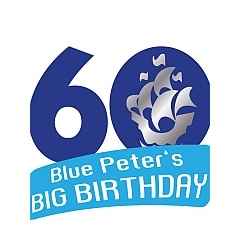Exploring why children still write letters
We collaborated with UK TV show Blue Peter and the National Literacy Trust to explore why children still love to write letters despite so many digital alternatives.
Letter writing is on the rise in the UK, with National Literacy Trust research showing that more than a third of children regularly write letters. The Trust’s eighth Annual Literacy Survey of more than 49,000 young people aged 8-18, found that 36 per cent write letters in their free time to recipients including family members, friends, Blue Peter, the Tooth Fairy, and Father Christmas. Young people’s top reasons for writing letters are to keep in touch with friends and family, to make the person they are writing to feel happy, and to help them remember special things that have happen. Of those who don’t write letters regularly, the main barriers found were a preference for writing emails or text messages, not being able to think of what to write, and not having time.
Blue Peter has recently celebrated its 60th birthday and still receives more than 100,000 letters a year—on average 500 letters a day. So far in 2018, the TV show has received 105,000 items of correspondence, compared to 40,000 in 2011. We analysed more than 1000 of those letters from 2016, by viewers aged 6-15, to find out why they still love putting pen to paper.
Most letters were written in the hope of securing a Blue Peter badge, with children displaying strong persuasive language skills in their explanations of why they should receive one. ‘Badge’ was the most used noun and ‘apply’ and ‘deserve’ were the most used verbs. Children displayed widespread mastery of traditional letter writing conventions, with unexpectedly formal endings seen in the letters written by the younger age group (6-9 years old), such as ‘yours sincerely’, ‘yours faithfully’, ‘yours gratefully’, and ‘kind regards’.
A key trend in the letters was a high social awareness and sensitivity—many children talked about fundraising and charity appeals such as cancer research and BBC Children in Need. Children’s non-fiction, descriptive language was particularly strong, with many letters referring to items on the show related to nature, space, the Olympics, and holidays. As well as references to current Blue Peter presenters Lindsey Russell and Radzi Chinyanganya, other proper nouns appearing in the sample included authors Roald Dahl and Beatrix Potter, astronaut Tim Peake, Pudsey the Children in Need bear, and fictional characters Tom Gates and Harry Potter.
Jonathan Douglas, Director of the National Literacy Trust, commented: ‘We are delighted that children and young people’s letter writing is at an all-time high in 2018—the very year that the National Literacy Trust is celebrating its 25th anniversary and Blue Peter is turning 60. Not only does letter writing help children and young people become more confident writers and flourish at school, but we now know it can also play a role in supporting children’s mental wellbeing by enabling them to express their feelings, keep in touch with friends and loved ones, and feel happy.’
Ewan Vinnicombe, Editor of Blue Peter, added: ‘The key to Blue Peter’s lasting success is that the audience are really at the heart of everything we do. We now have record amounts of post which shows how sending and receiving handwritten letters in a digital world is extra special to the children who watch.’
Speaking of our collaboration with Blue Peter, Helen Freeman, OUP’s Head of Education Publishing Operations & Trade, said: ‘It was fascinating to see why children continue to write to Blue Peter, and how much they value the programme. During our analysis of the letters we were particularly impressed by children’s confident use of persuasive language when applying for a badge, using creative and imaginative ways to talk about their achievements.’
( Press Release Image: https://photos.webwire.com/prmedia/6/230852/230852-1.jpg )
WebWireID230852
This news content was configured by WebWire editorial staff. Linking is permitted.
News Release Distribution and Press Release Distribution Services Provided by WebWire.
